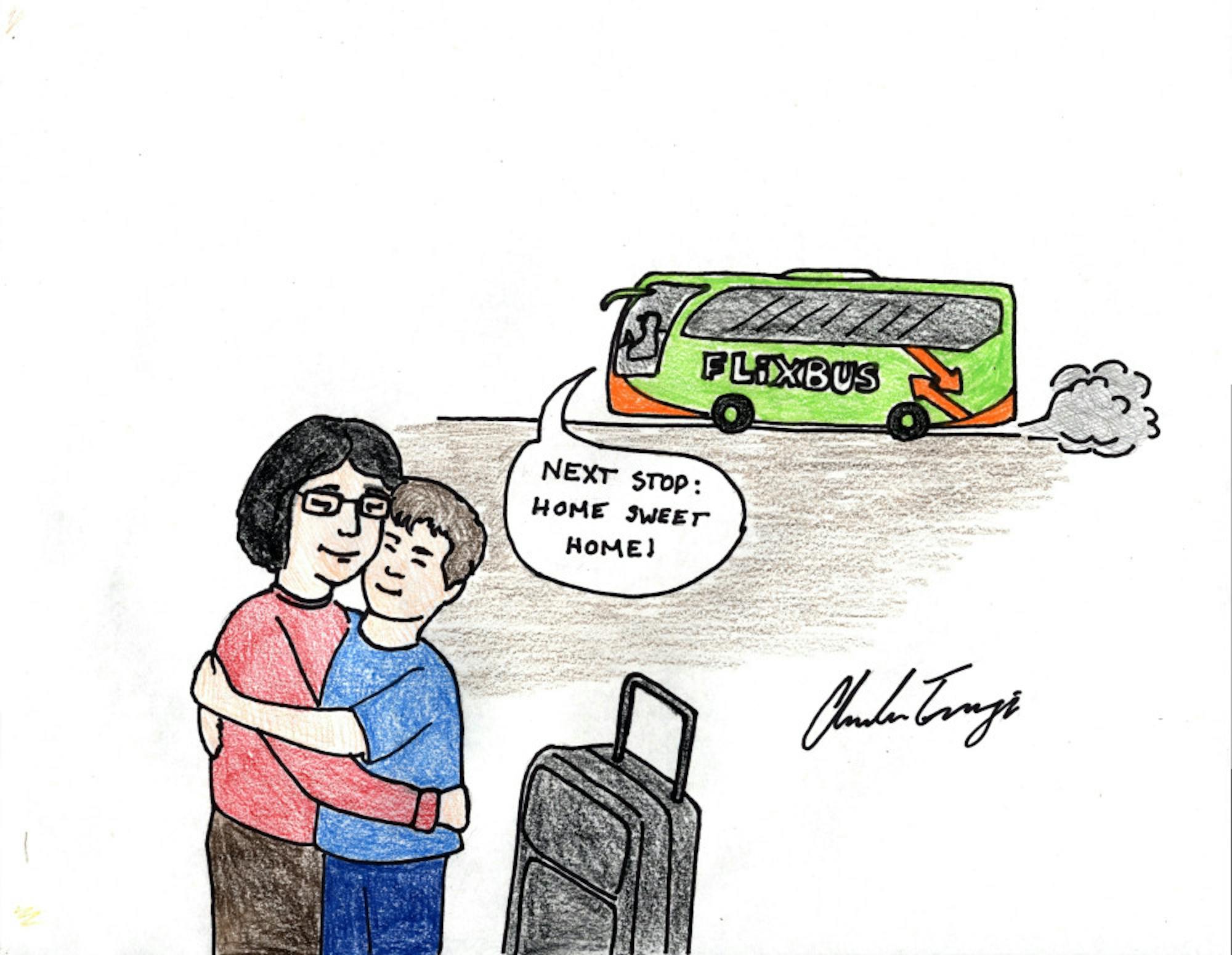Transportation costs, especially during the holidays, can be difficult for college students to afford. At Tufts, with so many students hailing from beyond the Greater Boston area, these costs can mount rapidly as transportation companies hike up prices during peak seasons. Recently, the private affordable bus company FlixBus made Tufts a stop on its Boston to New York City route and was met with praise and excitement from Tufts students. Why? Because students want to be able to go home to their families without breaking the bank. Ticket prices vary from $5 to $40 — a fraction of the cost of many alternatives such as air and train travel.FlixBus' decision to locate a stop on our campus was an economic one, made because demand for low-cost travel options is rising among students and young professionals, but it should be a wakeup call — transportation costs are incredibly expensive, and this forces many Tufts students to make the hard choice to remain on campus during many vacations instead of traveling home to their families.
The Flixbus stop at Tufts is a boon for students looking to see their families without the burden of expensive travel. Tufts should take this as a cue to seek partnerships with other travel companies to provide inexpensive and accessible transportation options for students. There are two direct approaches Tufts could take to make buses more available to students.
First, Tufts could actively seek partnerships with other transportation companies and seek to expand accessible options for routes beyond FlixBus' service to New York City and Washington, D.C. This could substantially increase the number of students able to go home during the holidays for a reasonable price. However, the influx of buses would clog the streets around Mayer Campus Center, where FlixBus currently departs.
This problem can be addressed with the second direct solution: free shuttles to regional transportation hubs during holiday travel seasons. TCU Senate already offers its Turkey Shuttle service during Thanksgiving, but Tufts should offer robust services which are available during all major holiday breaks. There should be a particular focus on Boston's South Station bus terminal, as many inexpensive bus routes depart from there, but reaching the station often involves expensive Uber or Lyft rides if students wish to avoid unreliable service on the T. A shuttle would solve this particular problem.
In addition to being economically accessible, taking the bus is also environmentally friendly. A round-trip plane ride from Boston to New York City produces about 2% of the greenhouse gases a car generates in a year. While taking the plane makes sense for people living on the West Coast, those living in the Northeast should strongly consider taking the bus instead of flying home. By mindfully cutting down on how many times they are taking a flight home, students can help reduce their carbon footprint on the planet.
Tufts students come from many different socioeconomic backgrounds, so transportation accessibility means much more than transportation to hubs and encouraging companies to base service from our campus. For students who live far from the Greater Boston area eligible for financial aid, the university should offer subsidies for plane and train tickets and pay in full for bus tickets. While financial aid covers many costs of education to varying degrees, it has a long way to go to make students feel like they are truly being supported beyond classroom finances. Tufts should make it easier for students to access affordable transportation options, and aid for those most in need should help cover transportation costs so students have the opportunity to go visit their families for the big moments.
Editorial: FlixBus should be a wakeup call to aid students in accessing affordable transport





